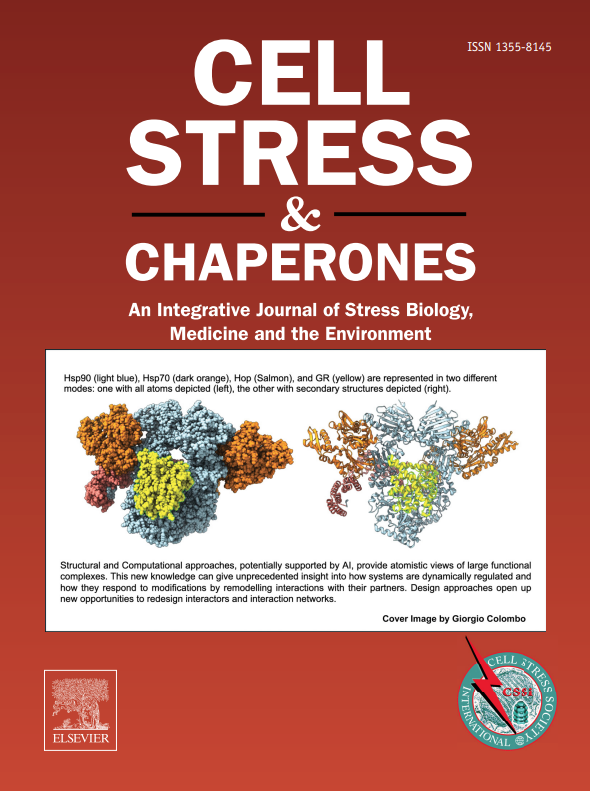JNK signaling dominance in hyperthermia
IF 3.2
3区 生物学
Q3 CELL BIOLOGY
引用次数: 0
Abstract
Hyperthermia is a promising anticancer treatment that induces heat stress, stimulating various signal transduction pathways to maintain cellular homeostasis. Mitogen-activated protein kinases (MAPKs) link various extracellular stimuli with cytoplasmic and nuclear mediators through a three-tiered cascade of kinases, including MAPKs, MAP2Ks, and MAP3Ks. In mammals, three major groups of MAPKs have been characterized: extracellular signal-regulated protein kinases (ERK), p38 MAPKs, and c-Jun NH2-terminal kinases (JNK). Each group of MAPKs is heat-activated and exhibits distinct biological functions. However, the differences and advantages of the regulation of each MAPK with temperature changes remain unknown. Our results demonstrated that JNK was activated in a temperature-dependent manner, with degradation of the JNK phosphatases despite transient phosphorylation of ERK with induction of the ERK phosphatases. This brief insight deepens our current understanding of the deregulation of the ERK and JNK cascades in hyperthermia.
JNK信号在高温中的优势。
热疗是一种很有前途的抗癌治疗方法,它可以诱导热应激,刺激各种信号转导途径来维持细胞稳态。丝裂原活化蛋白激酶(MAPKs)通过包括MAPKs、map2k和map3k在内的三层激酶级联,将各种细胞外刺激与细胞质和核介质连接起来。在哺乳动物中,已经确定了三组主要的mapk:细胞外信号调节蛋白激酶(ERK)、p38 MAPKs和c-Jun nh2末端激酶(JNK)。每组mapk都是热激活的,并表现出不同的生物学功能。然而,每种MAPK随温度变化调控的差异和优势尚不清楚。我们的研究结果表明,尽管ERK通过诱导ERK磷酸酶进行短暂磷酸化,但JNK以温度依赖的方式被激活,JNK磷酸酶降解。这一简短的见解加深了我们目前对热疗中ERK和JNK级联解除管制的理解。
本文章由计算机程序翻译,如有差异,请以英文原文为准。
求助全文
约1分钟内获得全文
求助全文
来源期刊

Cell Stress & Chaperones
生物-细胞生物学
CiteScore
7.60
自引率
2.60%
发文量
59
审稿时长
6-12 weeks
期刊介绍:
Cell Stress and Chaperones is an integrative journal that bridges the gap between laboratory model systems and natural populations. The journal captures the eclectic spirit of the cellular stress response field in a single, concentrated source of current information. Major emphasis is placed on the effects of climate change on individual species in the natural environment and their capacity to adapt. This emphasis expands our focus on stress biology and medicine by linking climate change effects to research on cellular stress responses of animals, micro-organisms and plants.
 求助内容:
求助内容: 应助结果提醒方式:
应助结果提醒方式:


